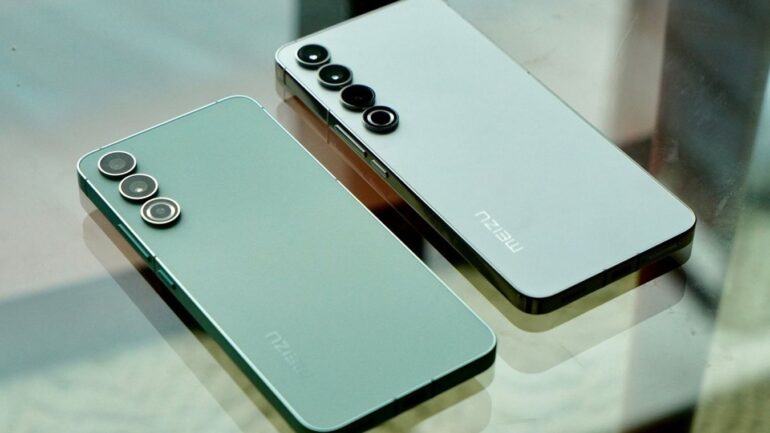TL;DR:
- Meizu Technology, backed by Geely, exits the smartphone business and shifts focus to AI.
- FlymeOS division to pioneer AI-driven terminal devices using global LLM.
- Flyme Auto system integrates with Geely-made vehicles, establishing a multi-terminal ecosystem.
- Meizu opts out of releasing Meizu 21 Pro, Meizu 22, and Meizu 23 series due to extended smartphone upgrade cycles.
- Plans include launching a bespoke mobile OS for the AI era in 2024 and introducing AI-enabled hardware in 2024.
- Continues support for existing smartphones and offline stores in China; no word on overseas support.
Main AI News:
In a bold move signaling a strategic shift, Meizu Technology, under the umbrella of Geely, has announced its departure from the smartphone arena. Instead, the company is placing its bets on the burgeoning field of artificial intelligence (AI), declaring its intent to channel all resources into AI innovation.
This seismic decision, outlined via a Weibo post, underscores Meizu’s conviction that AI represents the future of technology. The FlymeOS division, renowned for its expertise in software development, will undergo a transformation, refocusing its efforts towards pioneering new AI-driven terminal devices. These innovations are slated to leverage globally recognized LLM (large language models) such as OpenAI, amplifying Meizu’s footprint in the AI landscape.
Meizu’s groundwork in establishing a holistic multi-terminal ecosystem is already evident with the unveiling of Flyme Auto. This cutting-edge infotainment system, tailored for Geely-manufactured vehicles, including Polestar and Lotus, seamlessly integrates with FlymeOS 10-powered devices like the Meizu 20 and Meizu 21 flagships. This strategic alignment lays the foundation for a cohesive AI-driven ecosystem.
Chairman and CEO Shen Ziyu elucidated the rationale behind this pivotal decision, citing the evolving dynamics of the smartphone market. With users prolonging their upgrade cycles to an average of 51 months—equivalent to over four years—Meizu recognizes that competing companies now offer comparable performance in crucial aspects such as fluidity, photography, and software capabilities. Consequently, Meizu has opted to forego the release of anticipated models like the Meizu 21 Pro, Meizu 22, and Meizu 23 series.
Looking ahead, Meizu is poised to unveil a bespoke mobile operating system tailored for the AI era in 2024. Furthermore, the company is slated to introduce its inaugural AI-enabled hardware product later this year, signaling its commitment to innovation and diversification. Amidst these transformative endeavors, Meizu reassures existing smartphone users of continued support, including access to offline stores within China. However, the company remains silent on plans for overseas support, reflecting its hiatus from the international stage in recent years.
Conclusion:
Meizu’s strategic pivot towards AI innovation signals a profound shift in the market landscape. By divesting from the saturated smartphone segment and doubling down on AI, Meizu is poised to carve a niche in the evolving technological frontier. This move not only underscores Meizu’s commitment to innovation but also sets a precedent for industry players to adapt to the transformative power of artificial intelligence.

